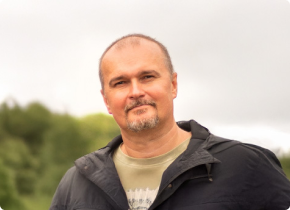State and local officials in Texas and Florida are increasingly voicing support for nuclear energy, pivoting toward advanced reactors and new investments as both states seek reliable, low-emission electricity to fuel their booming economies.
Key Takeaways
- Texas and Florida politicians promote nuclear energy as a safe, reliable, and green power source amid growing demand.
- Next-generation small and advanced nuclear reactors are at the center of new projects and legislative proposals.
- Public incentives and regulatory reforms are in discussion to encourage private investment in nuclear infrastructure.
Growing Political Consensus for Nuclear Power
Texas and Florida, two states known for their massive energy appetites, are witnessing a surge in bipartisan political momentum for nuclear power. As the limitations of renewable energy and fossil fuels become more apparent—especially in the wake of severe weather-induced grid failures—officials are revisiting nuclear as a stable and clean alternative.
Public statements from Texas Governor Greg Abbott and legislative leaders underscore a willingness to fast-track permitting and allocate funding for new nuclear installations. Notably, Texas senators are considering billions in public financing for nuclear projects, while public-private partnerships are being encouraged to tame technology costs and risks.
Shifting Technology: Advanced and Modular Reactors
The new generation of nuclear reactors—including small modular reactors (SMRs) and advanced molten salt designs—promises advantages over traditional mega-plants. Designed to be safer, cheaper, and faster to deploy, these reactors are seen as a way to directly power industrial operations like data centers, chemical processing plants, and even oil production sites.
For instance, collaborations are underway in Texas:
- Startups and academic partners are developing research and commercial SMRs at sites like Abilene Christian University.
- A multi-company proving ground is taking shape near Texas A&M, where private innovators can test and connect advanced reactors to the state grid.
- Industry heavyweights, such as Dow, are planning to deploy SMRs to power major manufacturing facilities.
Addressing Safety and Waste Concerns
Despite political enthusiasm, concerns remain around nuclear waste management and plant safety. Experts argue that while new designs boast intrinsic safety, the storage and long-term disposal of radioactive materials are unresolved issues. Public advocacy groups challenge the use of taxpayer dollars for technology still under regulatory review, highlighting the need for proven safety and robust oversight.
Nonetheless, university research centers and commercial startups stress that modern designs use innovative cooling systems and fuel forms to minimize risk and environmental impact. These reactors are also intended to produce less waste and offer easier recycling options compared to legacy plants.
Legislative and Economic Pathways
With the energy demand in Texas and Florida projected to soar due to data centers and new industry, lawmakers are rapidly introducing bills to:
- Establish new state authorities to champion nuclear deployment
- Streamline permitting processes
- Create large public funds, modeled after existing gas infrastructure programs, to anchor initial investments
Economically, the hope is that early-state support will spur private investment and help the region become a national and global hub for next-generation nuclear energy, balancing reliability, sustainability, and economic growth for decades ahead.
Sources
- Small nuclear reactors may be coming to Texas, The Texas Tribune.
- Texas wants to lead development of new type of nuclear power, The Texas Tribune.












